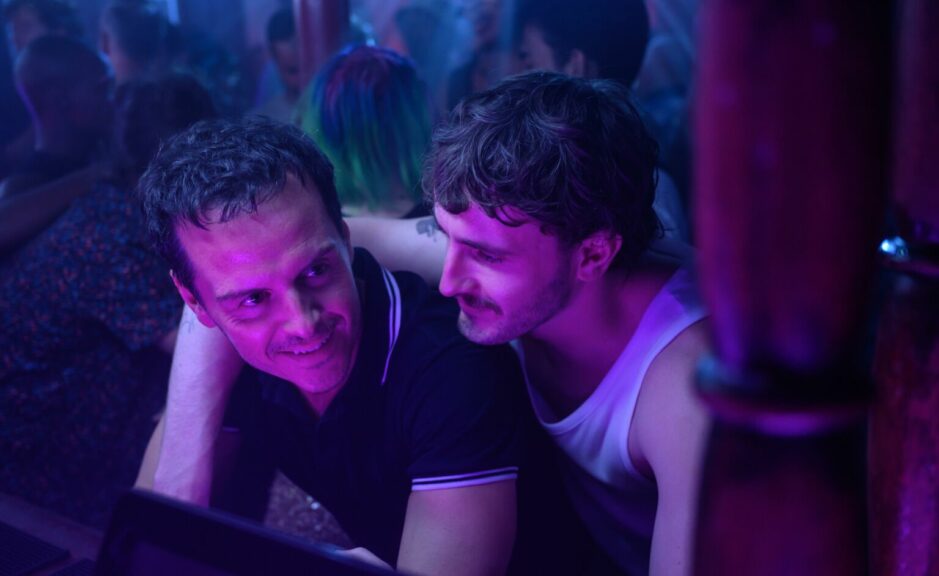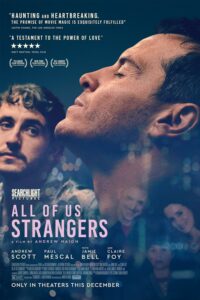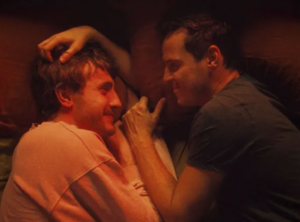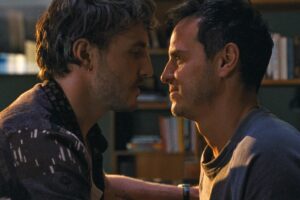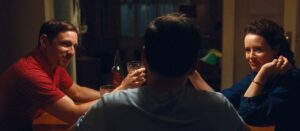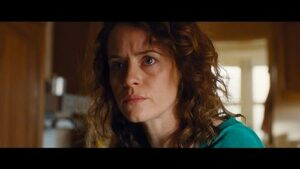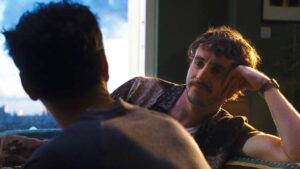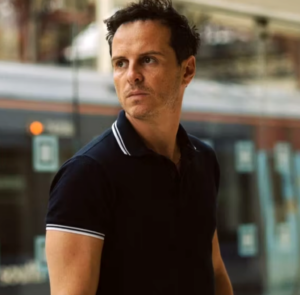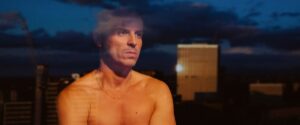Directed by Andrew Haigh | Written by Haigh, adapting a novel by Taichi Yamada | 105 min | ▲▲▲▲△
This is a story about loneliness and people haunted by the tragedies of the past, and seeing it within 24 hours of watching Memory it delivers a genuine wallop. It probably would anyway since it’s one of the most emotional films I’ve seen in a long while, one that (mostly) earns its tear-jerking.
Adam (Andrew Scott) is a single, gay man living in a practically uninhabited tower block in London. This is an interesting note, and plausible, given a lot of foreign investors buy up real estate in the city but then leave it vacant. Adam goes about his days struggling to write a screenplay inspired by his childhood, set back in 1987. The look of the film, the score by Emilie Levienaise-Farrouch, and the well-chosen needle drops from Pet Shop Boys, Frankie Goes To Hollywood, and Blur, quickly set a tone that’s thoughtful if slightly disembodied. Dreamlike, you could say.
Adam meets perhaps the only other man in the building, Harry (Paul Mescal), and a tentative romantic connection between them is established.
Adam plumbs his past with a visit to the commuter town he grew up in. Stopping by his childhood home reveals his parents (Jamie Bell and Claire Foy) still living there — except they’re the same age he is now, and they’ve been waiting for him. The hows and whys of this aren’t explored, and Adam doesn’t ask — he just walks across the threshold and is welcomed with open arms.
The thing is, his parents were killed in a car crash when he was 12 yet here they are as they were, quite aware of the impossibility of this scenario but still willing to go along with it.
At this point I was willing to receive this piece as a sweet and maybe a bit sentimental magic realist exploration of grief and the inexorable passage of time, but Strangers has a lot more on its mind. The first thing is when Adam comes out to his mother, whose perspective on that is very much stuck in the 1980s. The exploration of identity, and how fragile that can be, is one of the film’s more fascinating subplots.
The rules of this crossing over, of Adam’s visits with his parents, start to bend when he keeps returning and wanting to share more of his life with them, but there are limits, and for Adam that means coming to terms with the tragedy of his childhood and learning to live with it. Meanwhile, it’s clear that Harry has a few personal issues to resolve back in London as Adam’s world begins to fragment — a mid-movie transition in a single shot, deftly using lighting and score, is one of the most elegant I’ve seen in ages for communicating Adam’s shifting state of mind.
Andrew Scott has been so good on British shows like Sherlock and Fleabag, and I can’t wait to see him in the forthcoming Netflix series, Ripley. He’s also shone in features like Spectre, 1917, and Catherine Called Birdy. Here he carries the whole thing — Mescal, Foy, and Bell are strong in support, but this is all Scott’s movie, and when he shatters on screen it’s completely heartbreaking. The film doesn’t hesitate to go places that should resonate for most in the relationships between child and parent, especially for people where the history there has been challenging.
If I have a concern it’s in the film’s conclusion. I always look for a glimmer of hope in cinema, especially in a picture that trades so heavily in loss and grief, but Haigh doubles down in the last 10 minutes, which opens up the film to accusations it’s yet another tragic tale of queer life, a tired trope members of the LGBTQ+ community have long railed against. It doesn’t capsize the film, nor sour it, but is it easy to conceive a more ambiguous but also more positive conclusion for these characters? It is, indeed.





